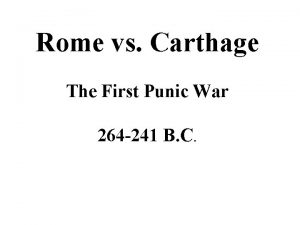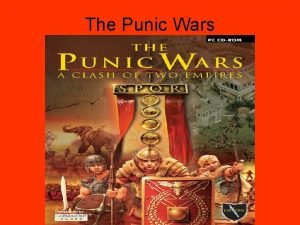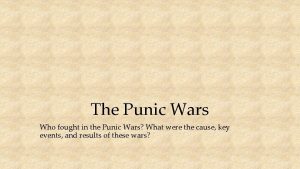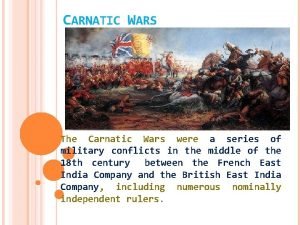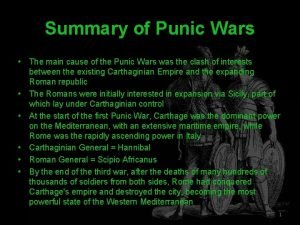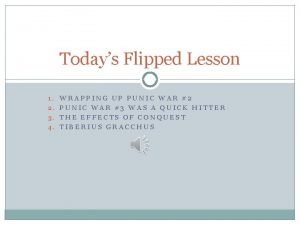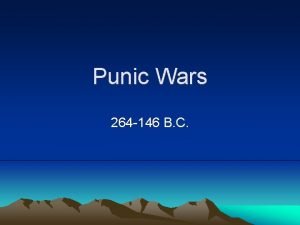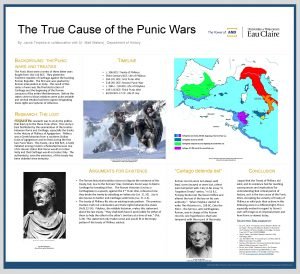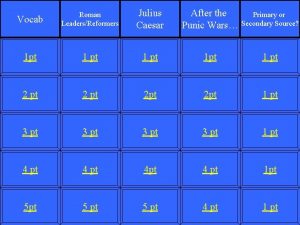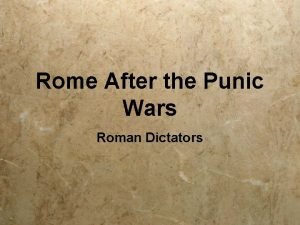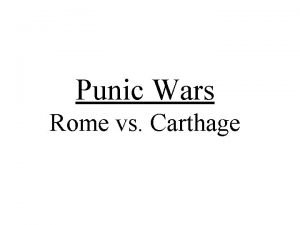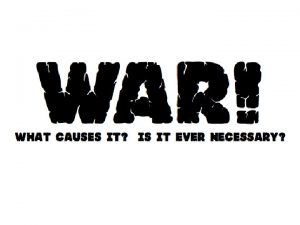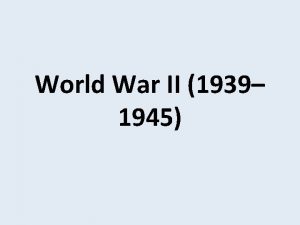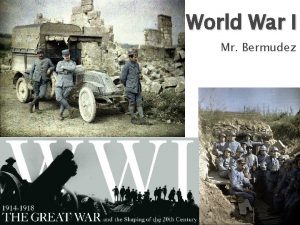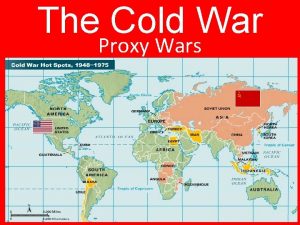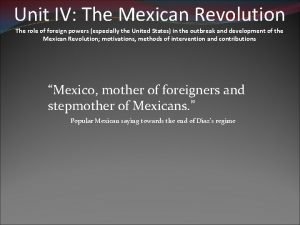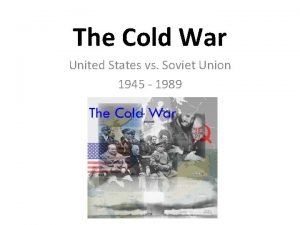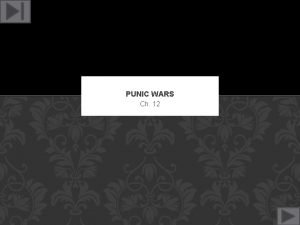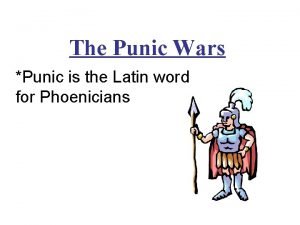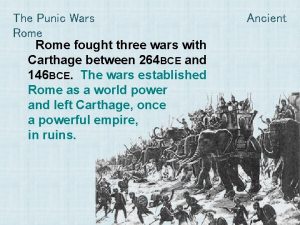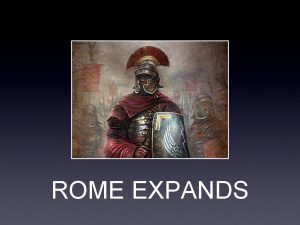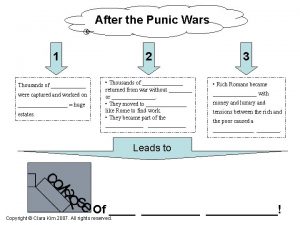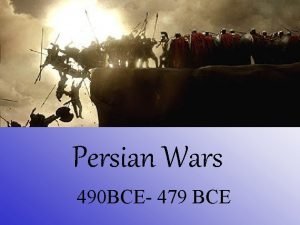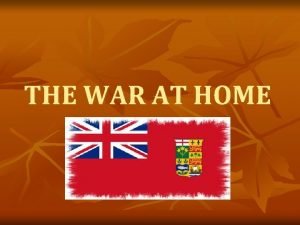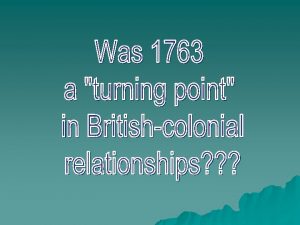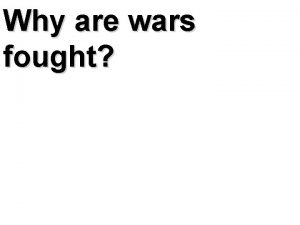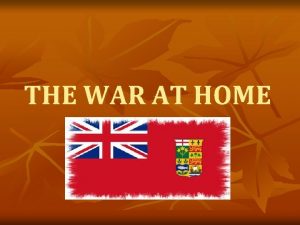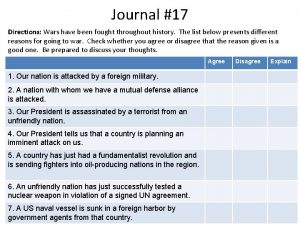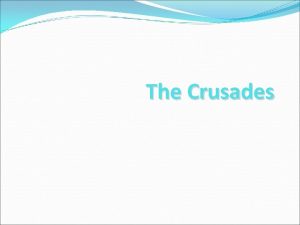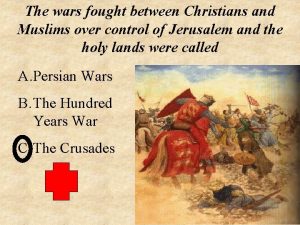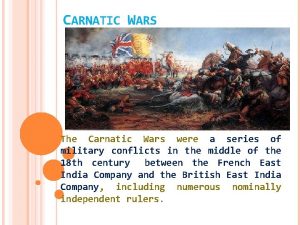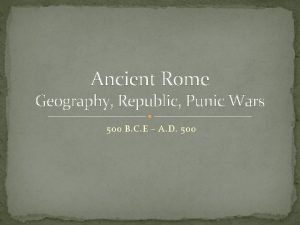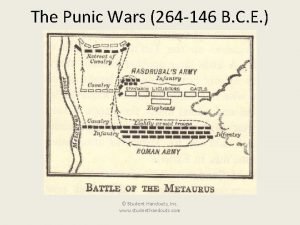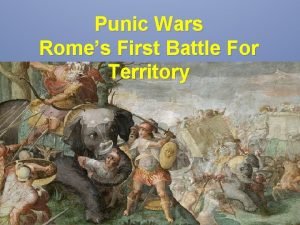The Punic Wars The Punic Wars were fought

































- Slides: 33

The Punic Wars

The Punic Wars were fought between Rome and Carthage.


The 1 st Punic War was fought over the control of the island of Sicily.

Carthage’s navy was utterly destroyed in the war. In 241 B. C. , a peace treaty was signed.

Why was the Roman victory at Sicily so important? • The Romans now had a buffer zone separating them from the Carthaginians.

In 221 B. C. Hannibal, a Carthage general, conquered a Roman ally in Spain. • The Romans demand Carthage dismiss Hannibal and send him to Rome. Carthage refuses and the 2 nd Punic War begins.

HANNIBAL: THE ANNIHILATOR

Hannibal took his large army and planned an invasion of Italy.

The Battle of Trebia River: Carthage wins

The Romans crossing the Trebia River. � The day was raw; snow was falling; the troops had not yet eaten their morning meal; yet, though they had been under arms for several hours, he pushed them across the fords of the Trebia, with the water breast-high and icy-cold. Arrived on the farther side, the Roman soldiers were so chilled that they could scarcely hold their weapons. [14][19] Hannibal was ready to receive them. His men had eaten, rubbed themselves with oil before their camp-fires, [13] and prepared their weapons. He might have attacked the Roman army when half of it was across, with even greater chances of success. But when he saw his ruse succeeding, he bethought him that he could produce a vastly greater moral effect on the new Gallic allies, as well as win a more decisive victory, by engaging the whole army on his own terms. [20]

Three critical errors � � � The assessment of the English historian Walter Raleigh is: [32] Three great errors Sempronius committed, of which every one deserved to be recompensed with the loss that followed. The first was, that he fought with Hannibal in a champain, being by far inferior in horse, and withal thereby subject to the African elephants, which in enclosed or uneven grounds, and woodlands, would have been of no use. His second error was, that he made no discovery of the place upon which he fought, whereby he was grossly overreached, and ensnared, by the ambush which Hannibal had laid for him. The third was, that he drenched his footmen with empty stomachs, in the river of Trebia, even in a most cold and frosty day, whereby in effect they lost the use of their limbs.

The Battle of Trisemene: Carthage wins.



In 218 B. C. , Hannibal crossed the Alps and entered Italy.


Hannibal and his army annihilate the forces in Northern Italy and gain alliances along the way. • 50, 000 Gauls join Hannibal.

Quintus Fabius Maximus became a military dictator of Rome and decided to wait out Hannibal rather than engaging him in direct contact.

“The Delayer” was removed. Two inexperienced hastily send 80, 000 troops to stop Hannibal, they fail. • It is said not one Roman returned alive.

The Battle of Cannae: 80, 000 Roman Soldiers were killed! https: //www. youtube. com/wat ch? v=CQNCGqfja. Bc

The Second Punic War ended at the battle of Zama in 202 BC, as Scipio defeated Hannibal. Carthage surrendered.

Zama was located just south of Carthage in North Africa.

The terms of surrender: • 1. Carthage had to hand over all their war elephants and war ships (except for ten), plus prisoners of war and one hundred hostages. • 2. Carthage also had to pay a huge war indemnity of 10, 000 talents in fifty yearly installments of two hundred talents. • 3. They also had to confine their reign to Africa (no more vacations in Spain). • 4. The Cathagians had to return some of the surrounding land to the neighboring Numidian king Masinissa, who was an ally to Rome. This would help the Romans because Masinissa could keep an eye on Carthage for them. • 5. Finally, Carthage couldn't go to war with anybody outside Africa at all. All their wars inside Africa had to be approved by none other than Rome.

Carthage had no hope after the battle. With almost no war ships, Carthage couldn't protect their merchant navy. Ten thousand talents was a huge sum to pay. The loss of their elephants was a great strength lost, not to mention losing land! Carthage saw this as a record low for Rome. For the victory over Carthage at Zama, Scipio demanded that he receive the title Scipio Africanus - Conqueror of Africa.

Carthage begins rebuilding its army. Thus the 3 rd Punic War begins.


The Romans invaded Carthage destroying the city, going door to door, and killing the inhabitants.

The city burned for 17 days.


The great city of Carthage was destroyed.

To assure people do not rebuild Carthage, salt was sown in its fields. Carthage was dead.

The End…
 Romans vs carthaginians
Romans vs carthaginians The punic wars were fought between rome and carthage
The punic wars were fought between rome and carthage Second punic war key events and results
Second punic war key events and results Roman invasion of carthage
Roman invasion of carthage The carnatic wars were a series of
The carnatic wars were a series of What was the main cause of the punic wars
What was the main cause of the punic wars Effects of the punic wars
Effects of the punic wars The punic war
The punic war Causes of the punic wars
Causes of the punic wars Jacob terpstra
Jacob terpstra Punic wars def
Punic wars def Ides of march punic wars
Ides of march punic wars Rome after the punic wars
Rome after the punic wars Punic wars notes
Punic wars notes The punic wars worksheet answer key
The punic wars worksheet answer key The french and indian war was fought between
The french and indian war was fought between Carmen fought and karen eisenhauer
Carmen fought and karen eisenhauer Soviet deaths ww2
Soviet deaths ww2 I fought for you
I fought for you Fought
Fought Allies in ww1
Allies in ww1 Cold war proxy wars
Cold war proxy wars What the united states has fought for
What the united states has fought for Soviet
Soviet Past form of fight
Past form of fight Was were going to future in the past
Was were going to future in the past Punic table
Punic table Heterozygous recessive
Heterozygous recessive Bb x bb punnett square
Bb x bb punnett square Latin word for phoenician
Latin word for phoenician Công thức tính thế năng
Công thức tính thế năng Tỉ lệ cơ thể trẻ em
Tỉ lệ cơ thể trẻ em Thế nào là mạng điện lắp đặt kiểu nổi
Thế nào là mạng điện lắp đặt kiểu nổi Lời thề hippocrates
Lời thề hippocrates
